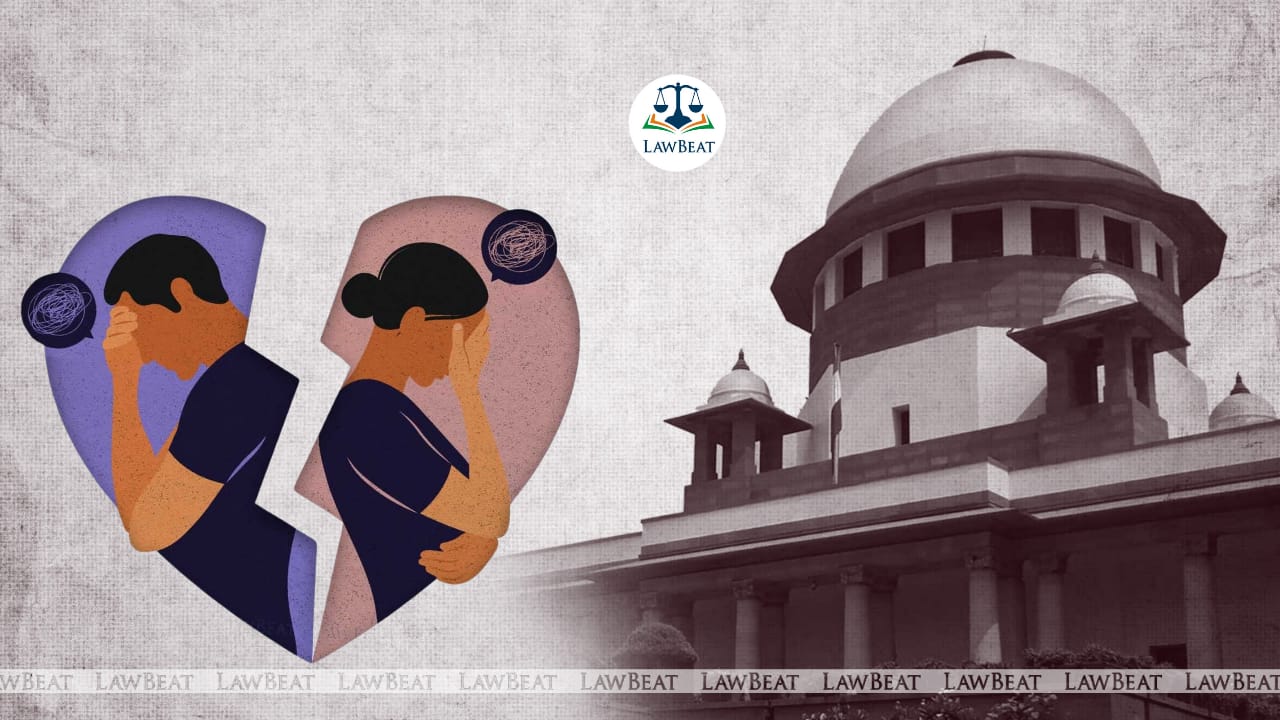‘Separated Just 4 Months After Marriage in 1999’: SC Ends Decades-Long Marital Dispute

Court noted that the couple's long separation had not resulted in an attitude of ‘forget and forgive’; but on the contrary had fueled into further acrimony
The Supreme Court recently gave a quietus to a long and bitter legal battle between a husband and wife, who remained together for just four months after their marriage in 1999, by severing their marital ties. Court ordered the man to pay Rs 25 lakhs as permanent alimony.
The bench of Justices B R Gavai and K Vinod Chandran dealt with the appeal against the high court's decision to raise monthly maintenance, reject the husband's divorce plea, and send his petition back to the family court, based on the Constitution Bench's observations in Shilpa Suresh vs. Varun Sreenivasan (2023).
The apex court observed that the couple married in 1999 but stayed together for only four months. After marrying on May 27, 1999, they moved to Assam, where the husband worked. However, after a brief and turbulent period, they separated. The husband accused the wife of desertion, while she claimed she was forcibly evicted from their home on October 31, 1999. They have been separated since then and have remained entangled in ongoing legal battles.
"Long separation has not resulted in an attitude of ‘forget and forgive’; but on the contrary has fueled into further acrimony. Though living apart, the bitterness has continued and escalated to spread over in the form of litigations. There are no children involved, fortunately, and both the parties are educated," the bench said.
As of the present, the court noted, both had passed their prime.
"We were of the opinion that there should be a quietus in the matter which would also release both the parties from the trauma of an agonizing marriage; which was a non-starter," the bench said.
The bench highlighted that the Constitutional Bench had acknowledged cases of exceptional hardship, where after years of bitter litigation and prolonged suffering, both parties jointly seek the dissolution of marriage and a waiver of the second motion requirement. Such a request could be granted when divorce becomes inevitable due to irreconcilable differences, evident from mutual allegations and aspersions, or when multiple litigations make the continuation of the marital relationship impossible.
The Constitutional Bench had held that if the court is satisfied with the complete and irretrievable breakdown of the marriage, a divorce can be granted despite the other spouse's opposition. However, it was clarified that while divorce on the grounds of irretrievable breakdown is not a right, it is a discretionary remedy that must be exercised with great care and caution, ensuring that 'complete justice' is achieved for both parties.
"Though the Bench refused to codify the various factors, which could curtail the exercise of jurisdiction, sufficient guidelines have been laid down to invoke the powers under Article 142 to do ‘complete justice’ to both the parties when the Court is fully convinced and satisfied that the marriage is totally ‘unworkable, emotionally dead and beyond salvation’," the bench pointed out.
Coming back to the facts of the matter, the bench observed that the husband was employed in a public sector undertaking, while the wife, although unemployed, held a postgraduate degree.
"We cannot but notice that despite her educational qualification, it is too late in life to establish herself in a profession and employment to ensure a decent livelihood. We are of the opinion, looking at the facts of the case and on a bare reading of the allegations and counter allegations that come forth in the pleadings, that there is no salvation possible and the relationship is practically dead and emotionally irretrievable," the bench opined.
Court said it was only concerned with providing adequate alimony for the wife to ensure that the wife is not left to fend for herself and both parties are not saddled again with the existing or further litigations.
"We, hence, on the totality of the circumstances direct that the parties be granted divorce on grounds of irretrievable breakdown of marriage; but subject to the condition that the appellant husband pays an amount of Rs 25 lakhs within a period of six months from today," the bench ordered.
The court also clarified that this judgment can be presented by either spouse in any court where criminal or civil proceedings related to the marriage are ongoing, in order to bring a final resolution to the matter.
Case Title: Gudivada Seshagiri Rao Vs Gudivada Ashalatha & Anr
